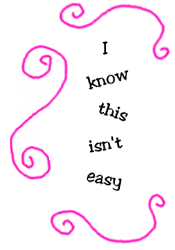 Q Dear Miss Abigail:
Q Dear Miss Abigail:
Why do I feel that everyone is laughing at me just because I don’t hang around with them? If I do hang out with them, I never know what to say. I feel I’m not liked by my peers, but I’m not sure where I’m going wrong. Please help!
Signed,
Andrew
A Dear Andrew:
Pat Boone, in his fabulous book ‘Twixt Twelve and Twenty: Pat talks to Teenagers, seems to address some of your concerns. Here is a sampling from his “To be a Friend” chapter ~ perhaps it will help you gain some confidence. Now go out there and be yourself!
1958: Daring to be Yourself
![]() It’s normal for teen-agers to form social groups. This is fine and healthy if these are circles of friendship. . . . It is quite another thing, to my mind, if they are mutual protective societies, cliques, crowds, threesomes or foursomes that use their united power to exclude or hurt others; or to give a group security to do things that not one of them would do as an individual; or to deprive members of individuality until they all follow leaders like sheep or insist on doing what ‘all the other girls do’ simply because all the other girls do it.
It’s normal for teen-agers to form social groups. This is fine and healthy if these are circles of friendship. . . . It is quite another thing, to my mind, if they are mutual protective societies, cliques, crowds, threesomes or foursomes that use their united power to exclude or hurt others; or to give a group security to do things that not one of them would do as an individual; or to deprive members of individuality until they all follow leaders like sheep or insist on doing what ‘all the other girls do’ simply because all the other girls do it.
I’m not talking about juvenile gangs either. I’ve actually seen a strong clique of supposedly nice girls pick the feathers from an outsider, or kick out some poor gal for failure to conform, or talk about an absent one in a way that made me wonder what little girls are made of.
I know this is all unusual but I think it’s really important to guard against it happening at all. The basis of all happy social dealings is being kind to one another. I, for one, really admire the guys and gals who have the courage to insist on doing that. What I’m saying is, don’t let any group become so important to you that you will betray your own standards to belong to it. Maybe that sounds like an odd way to tell you to make a hit, but believe me, you won’t lose any friends. You may, however, find a few friends you didn’t really know you had.
Look, I know this isn’t easy. I have had my own problems along this line, like the question of joining a high school fraternity. To assume an air of exclusiveness, some frats discriminate against boys because of their poverty or belief or race. My parents disapproved of that, but when I pledged, intending to join a frat, they didn’t forbit me. Something else did. It suddenly just seemed goofy, I guess, because it didn’t stack up with the principles of friendship as I understood them. Now, it might coincide with your principles. Then it would be all right for you. But it wasn’t for me. So I had to make a stand right there.
This doesn’t mean defiance, or bitterness, or trying to tear others down. It just means the quiet courage to do what you think is right, and stand on the consequences, like the little boy whose Sunday school teacher asked: ‘If you are always kind and polite to all your playmates, what will they think of you?’
The boy said: ‘Some of them will think they can lick me.’
And some of them will think they can lick you. But when they find that they can’t, then the right ones will join you, and you have taken the step that means leadership. You are bound to be attractive to worthwhile people because now you really have what it takes to be a
friend.![]()
Source: Boone, Pat. ‘Twixt Twelve and Twenty: Pat talks to Teenagers. Engelwood Cliffs, N.J.: Prentice-Hall, Inc., 1958.
~ pp. 98-99 ~